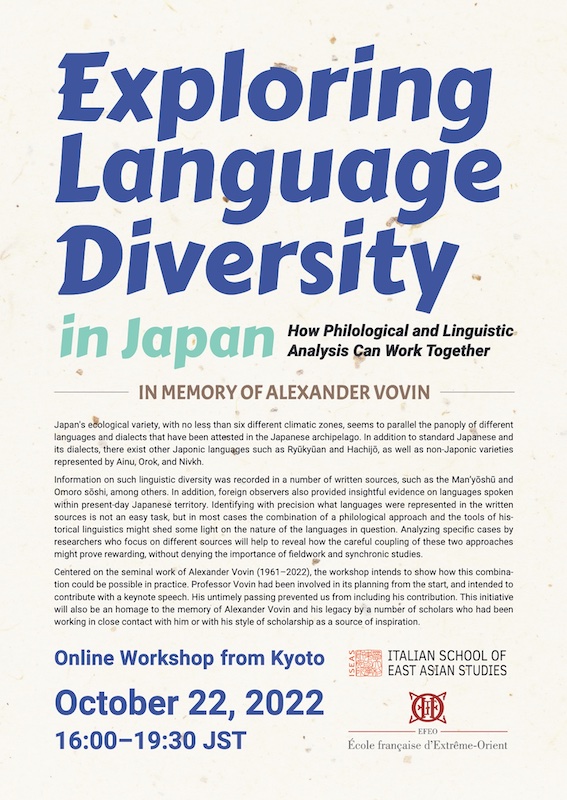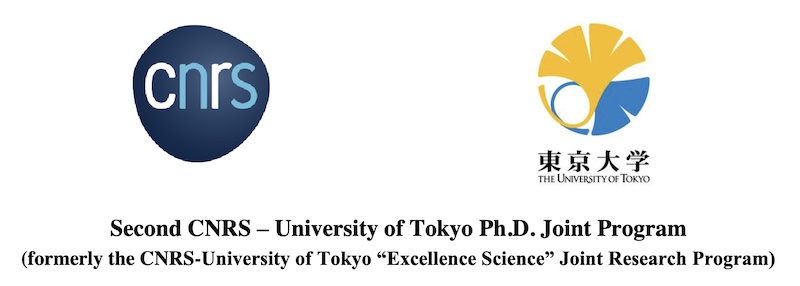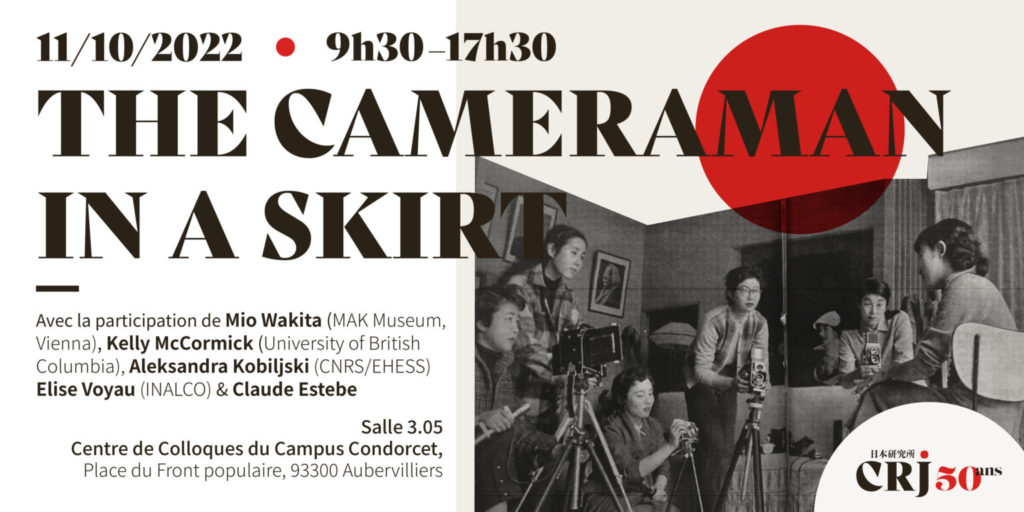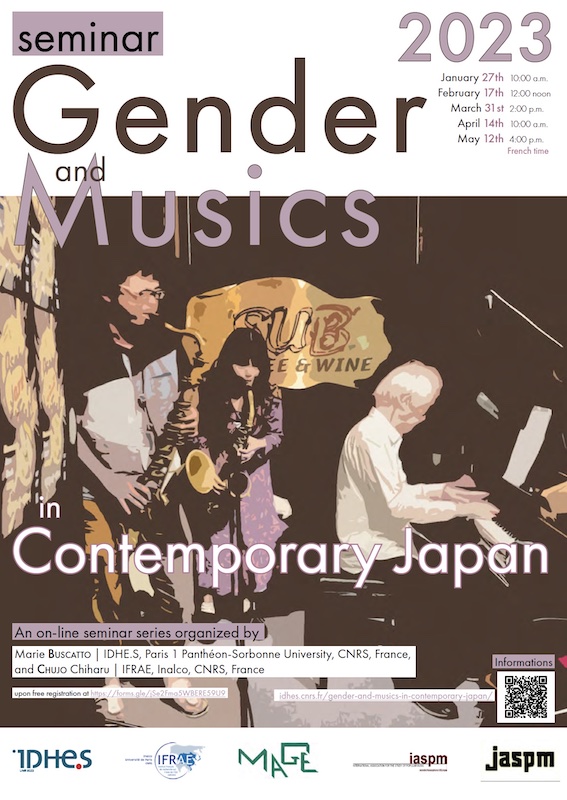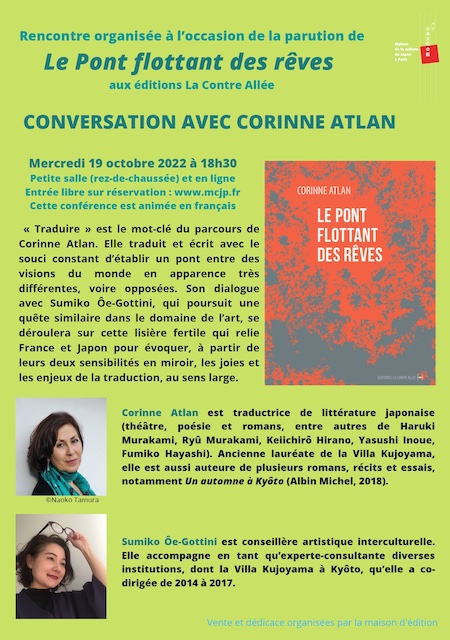Chiharu Chujo (Ifrae, Inalco-CNRS) et Marie Buscatto (Idhe.s, Paris 1 Panthéon-Sorbonne, CNRS) organisent un cycle de conférences, en ligne, intitulé :
« Gender and Musics in Contemporary Japan »
On-line seminar series organized by
Marie Buscatto and Chiharu Chujo
With the support of Idhe.s, Ifrae, Mage, IASPM Bfe,
JASPM and GMCSA
Presentation
What does it mean to be a female musician in Japan in the 21st century? How do femininities and masculinities get performed, represented, transgressed, erased, and transformed on the musical stage? Are there musical genres which are more open to women, queer or non-binary people? How gendered are musical scenes, whether very commercial or not? If so, how does it work out within the musical industry?
A hyper-gendered norm remains dominant in the Japanese popular music sphere as illustrated by the popular figures of female idols. And this gendered norm is also to be found in the pre-war and post-war period with the development of music industry in Modern Japan. But more and more Japanese female and male, queer and non-binary people create new ways to play music transgressing gendered norms in contemporary Japan.
This seminar aims at questioning the presence of Japanese female, male, queer and non-binary musicians in popular and classical music in Japan. Along which processes has a hyper-gendered norm been trenched in the Japanese music industry? How do female musicians deal with those gendered restraints to enter the musical field? Do some confidential popular music styles enable women, queer or non-binary people to defy gendered expectations? How do masculinities and femininities get performed and transgressed in the daily interaction, how are they represented in the media as well as in discourses? How do gender, race and social class intersect when it comes to the Japanese musical sphere? Based on ten empirical studies conducted in Japan in many musical genres – rock, classical, jazz, J-pop, hip hop, tango and hardcore – this seminar will examine how Japanese female, male, queer and non-binary musicians construct their social positions and representations along gendered norms while also at times transgressing or subverting them. Inviting scholars who work in Japan, in Poland, in England, in France, in Switzerland and in the USA, this seminar will also be an opportunity to ask a more general question: how does Japan compare to other countries when it comes to assessing ways gendered norms are played out in the musical sphere?
Inscriptions
This seminar will be held on-line, in English, and can be attended upon free registration on this link.
Programme
January 27th 10:00 a.m. (French time) Gender and the Japanese Musical Industry
Discussant: Clara WARTELLE-SAKAMOTO (CRCAO, Université Paris Cité – CNRS, France)
Working conditions of women in the popular music industry in contemporary Japan: a general survey, CHUJO Chiharu (IFRAE, Inalco – CNRS, France)
No dating, compulsory heterosexuality: the heteronormative construction of Japanese « Idols », KAMIOKA Mana (Keio University, Japan)
February 17th 12:00 noon (French time) The feminization of popular music: from limiting processes to levers of transgression
Discussant: César CASTELLVI (CRCAO, Université Paris Cité – CNRS, France)
Performing Body and Argentine Tango Culture in Contemporary Japan, ASABA Yuiko (University of Huddersfield, U.K.)
The paradoxical feminization of the Japanese jazz world. Ways and reasons, Marie BUSCATTO (IDHE.S, Paris 1 Panthéon Sorbonne University – CNRS, France)
March 31st 2:00 p.m. (French time) Gendered strategies in the Underground musical scenes
Discussant: Marc PERRENOUD (Lausanne University, Switzerland)
From Shonen Knife to Social Media: All-female Japanese Punk Rock Groups and the Global Marketing of Girls, Jennifer MILIOTO MATSUE (Union College, USA)
Gender Strategies of Visual-kei Bands and the Transformation of Fandom, INOUE Takako (Daito Bunka University, Japan)
April 14th 10:00 a.m. (French time) Masculinities and Racisation in Music
Discussant: KOIZUMI Kyoko (Independent researcher)
Transnational Black Musical Bodies and the Crisis of Japanese Masculinities from the 1990s to the 2020s
NAGATOMI Mari (Kansai University – Osaka, Japan)
Maneuvering Marginalized Masculinity and Japanese Classical Music, Beata M. KOWALCZYK (Adam Mickiewicz University, Poland)
May 12th 4:00 p.m. (French time) Gender and Hip-Hop
Discussant: Karim HAMMOU (Csu-Cresppa, CNRS, France)
Hip-hop in Japanese schools: how gendered is street dance? ARIKUNI Akihiro (Osaka City University, Japan)
MoNa a.k.a. Sad Girl: Examining the glocal hybrid identity of a Japanese Chicana rapper, Kristin HELLAND (Arizona University, USA)
(Lien vers l’affiche et le programme complet)

